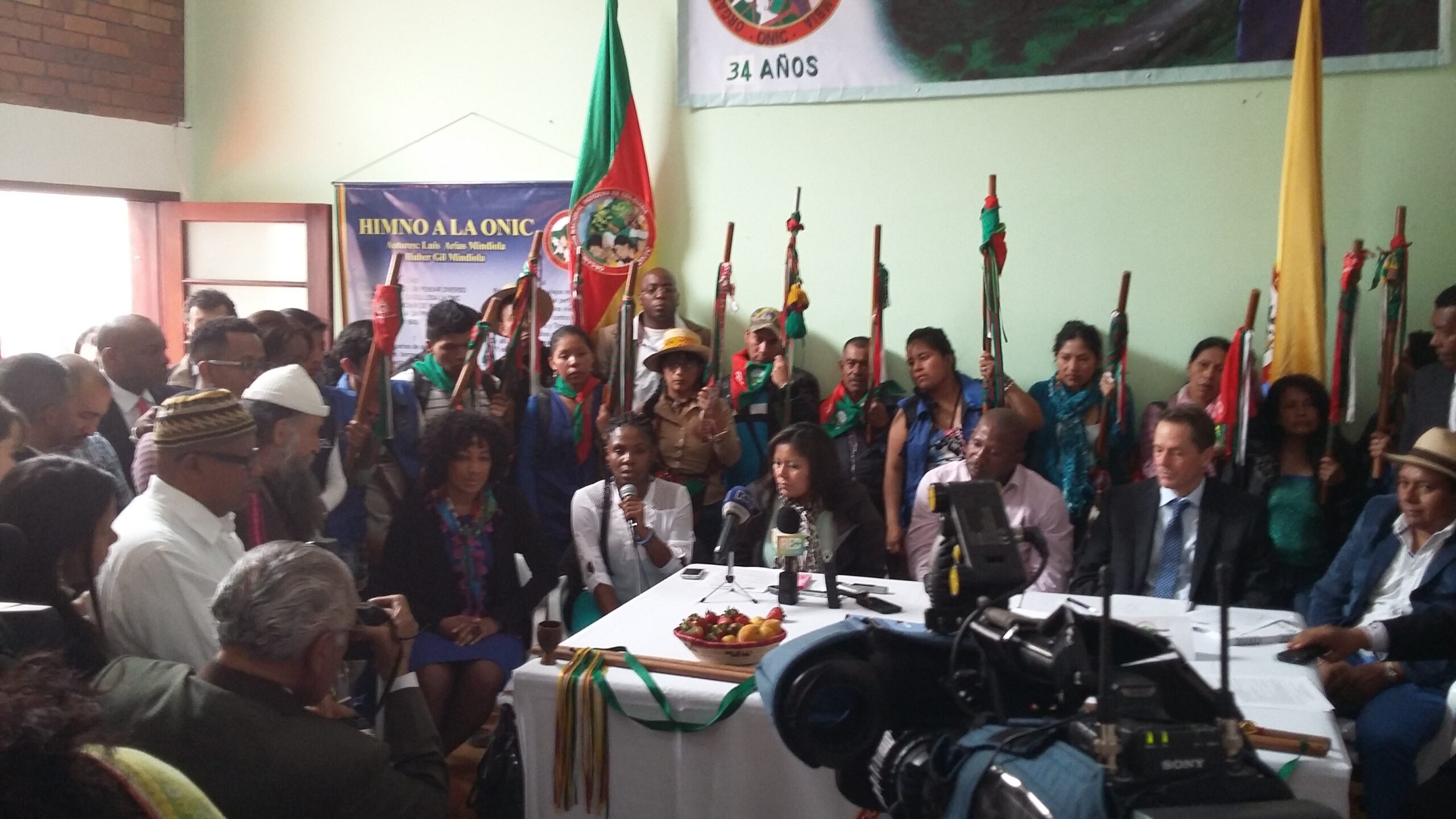Press Conference Introducing the Ethnic Commission for Peace and the Defense of Territorial Rights
Bogota, March 9, 2016. The National Afro-Colombian Peace Council (Consejo Nacional de Paz Afrocolombiano, CONPA) and the Colombian National Indigenous Organization (Organización Nacional Indígena de Colombia, ONIC) held a press […]

Bogota, March 9, 2016. The National Afro-Colombian Peace Council (Consejo Nacional de Paz Afrocolombiano, CONPA) and the Colombian National Indigenous Organization (Organización Nacional Indígena de Colombia, ONIC) held a press conference to publicly introduce the Ethnic Commission for Peace and the Defense of Territorial Rights (Comisión Étnica para la Paz y la Defensa de los Derechos Territoriales). The event was attended by diplomatic personnel, development agency staff and representatives from the United Nations, including Todd Howland from Colombian Office of the UN High Commissioner for Human Rights.
The primary objective of the Commission is to develop actions to protect the rights of Afro-Colombians and indigenous communities during both the peace negotiations between the Colombian government and the FARC-EP, and in the implementation of the peace accords that will put and end to the Colombian armed conflict.
Pedro Cortes Ruiz, Colombian Consultant for the Institute on Race, Equality and Human Rights, participated in a two-day conference in preparation for the launch of the Commission. The following are some ideas and analysis from those two days:
Why create the Commission? The Commission is an autonomous response by Colombia’s ethnic communities to their exclusion from the dialogue process between the government and the FARC-EP, despite their repeated requests for inclusion made to the peace negotiators as well to the government and the FARC-EP, separately. These requests have been made based on a solid analysis that demonstrates the importance of including these communities in the peace process as a means to guaranteeing a sustainable, stable and lasting peace. Not only have ethnic communities been the groups most affected by the conflict (making up over 30% of all victims), the implementation of the accords will largely take place in their territories.
What is the Commission asking for? In the short term, to be invited in the coming weeks by the peace negotiators to present their analysis and proposals. The ethnic organizations have supported the peace process, but they have become aware that the accords reached at this time do not adequately incorporate critical elements that will guarantee the rights they have achieved—rights recognized in national and international law. The Commission doesn’t seek to “renegotiate” what has already been agreed. It proposes the inclusion of clauses that explicitly protect the rights of the communities they represent. Without these clauses, the implementation of many aspects of the accords, for example the creation of peasant reserve areas, land funds, electoral “peace” districts, amongst others, could further threaten the rights of Colombia’s ethnic communities.
The Relevance of the Commission in Protecting the Rights of Ethnic Communities. The Commission strengthens a necessary condition for protecting the rights of ethnic communities: the existence of a broad, unified social movement with the capacity make its influence felt. An alliance between indigenous peoples and Afro-Colombians is a bond that has been sought throughout Colombia’s history, and this union is now being revitalized. Moreover, the Commission responds to an important recommendation made by the UN Committee for the Elimination of Racial Discrimination in its concluding observations to the periodic review of Colombia in August 2015, when it indicated the need for the inclusion Colombia’s ethnic communities in the peace process.

